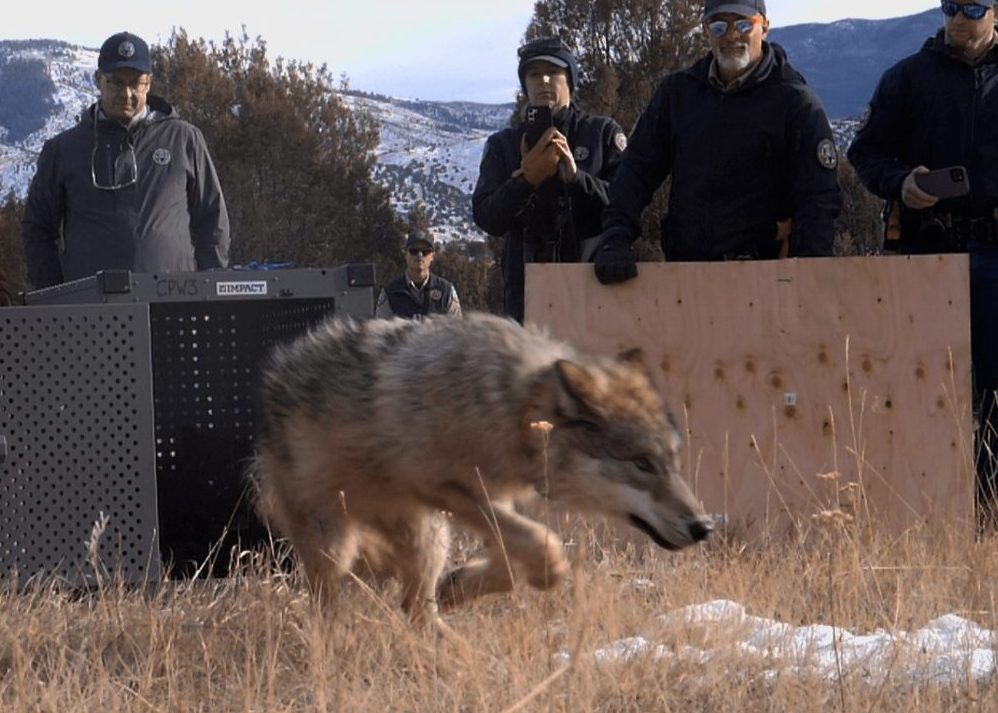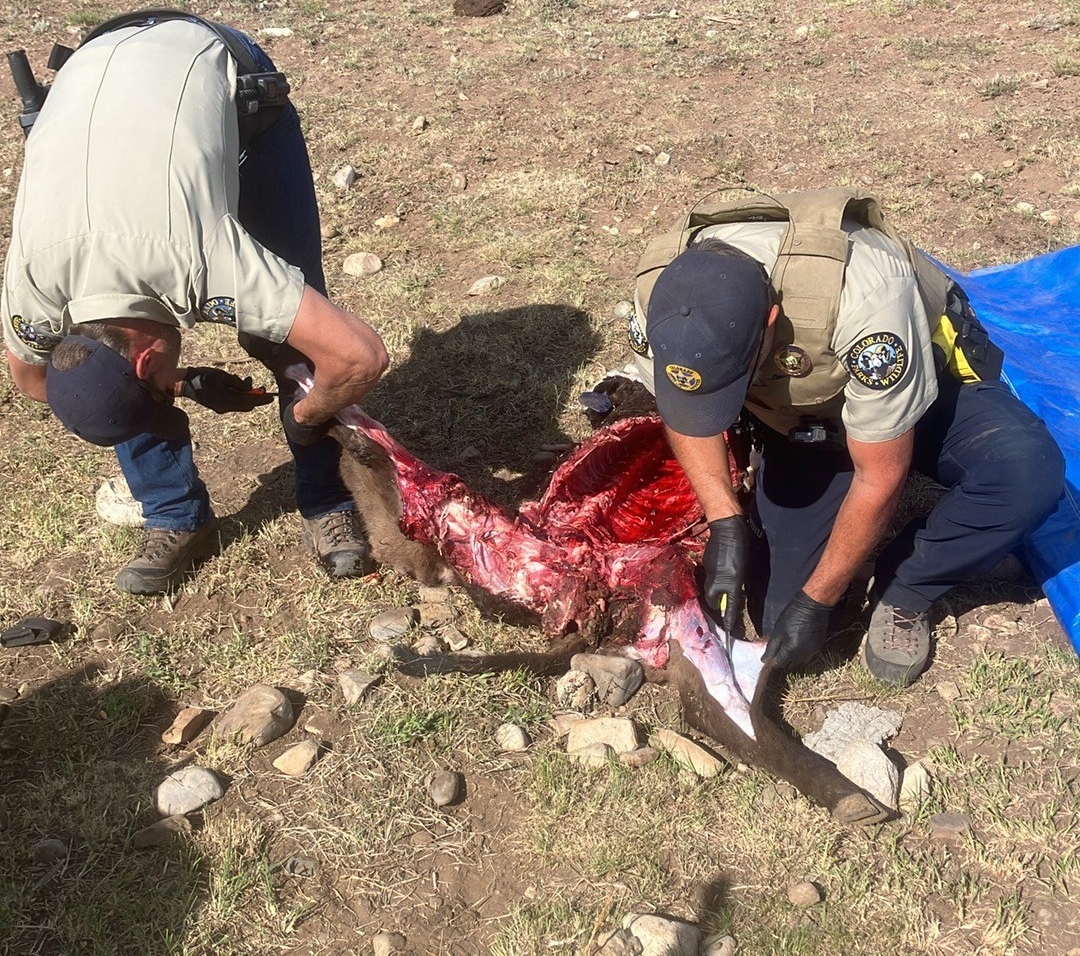
Colorado Parks and Wildlife (CPW) officials killed a gray wolf in Pitkin County on Thursday evening, May 29, after confirming a series of livestock attacks that met the state’s threshold for “chronic depredation.”
The wolf, known as 2405, belonged to the Copper Creek Pack and was killed and removed on May 29 following four separate attacks between May 17 and 25. CPW said ranchers in the area had used a variety of non-lethal deterrents and removed any potential attractants from grazing areas. Despite those efforts, officials determined the wolf continued to prey on cattle. “The decision to take lethal management action was very difficult,” said CPW Director Jeff Davis. “But the depredation behavior met the conditions for chronic depredation as defined earlier this year. We have great respect for these animals, and this kind of action is rare, but it aligns with Colorado’s Wolf Restoration and Management Plan.”
The Copper Creek Pack is being monitored to assess whether the killing changes its behavior and reduces future livestock conflicts. The incident underscores the challenges Colorado faces balancing gray wolf restoration with livestock protection—a tension heightened since voters narrowly approved wolf reintroduction in 2020. Ginny Harrington, who operates the Crystal River Ranch together with her husband Tom Harrington, described the loss of the calf as devastating. “The situation is not sustainable,” she added in an interview with Aspen Times. Harrington emphasized that more needs to be done to inform ranchers of wolves roaming within 20 miles of ranches in order to effectively protect their cattle.
CPW confirmed four wolf depredation incidents at Lost Marbles Ranch, Crystal River Ranch, and McCabe Ranch in Pitkin County byt the same wolf 2405, a male wolf pup. :
- May 17: One calf injured; collar data confirmed a Copper Creek wolf nearby.
- May 23: One calf killed, with clear evidence pointing to a wolf.
- May 24: One calf killed and another injured.
- May 25: One cow and one calf injured.
Under CPW guidelines, “chronic depredation” is defined as three or more livestock attacks within 30 days, with clear and convincing evidence for at least one. CPW says this case met those criteria, triggering the agency’s authority to remove the offending animal.

Local ranchers had worked with CPW in recent months to reduce the chances of conflict. Preventive measures included visual deterrents like turbo fladry, noise-makers, fox lights, and increased human patrols. After each confirmed kill, ranchers buried carcasses and cleared away remains to avoid drawing more wolves. CPW also contracted range riders to help monitor livestock. “These producers have been proactive partners,” Davis said. “The goal of this management action is to discourage the rest of the pack from turning to livestock as a primary food source.”
Wolves in Colorado remain federally protected under the Endangered Species Act. However, the U.S. Fish and Wildlife Service granted Colorado a special 10(j) designation in 2023, giving state officials more flexibility to manage wolves—including, in some cases, lethal control. Eric Odell, CPW’s wolf conservation program manager, emphasized that lethal removal is a last resort. “This is about managing a growing population while helping landowners resolve active conflicts,” he said. Colorado now has an estimated 23 collared wolves and likely more uncollared animals. The agency is also monitoring four possible dens, indicating new pups may be on the landscape.
The Copper Creek Pack remains under observation, and CPW says it will continue to work with ranchers to prevent future conflicts. Officials declined to share the location of surviving pack members but said additional non-lethal tools will be used if needed.
CPW may compensate the affected ranchers for the fair market value of their lost livestock, pending claims. The agency’s Gray Wolf Compensation and Conflict Minimization Program provides financial support for both confirmed losses and prevention efforts.
While the killing of a wolf is legal in limited, approved cases under CPW and federal rules, unauthorized killing remains a federal offense punishable by up to one year in prison and a $100,000 fine.
As Colorado’s reintroduced wolf population grows, the state will continue walking a fine line—protecting both its newly restored apex predators and the livelihoods of ranchers who live and work on the frontlines of that recovery.





Let’s re-introduce an animal, that kills to live, into an agricultural area. One that we eradicated a hundred years ago because it was killing livestock. Just so that we can eradicate it again.
A cruel experiment! Front Range politic need to wake up!
Had wolves been allowed to stay where they had been — out of Colorado — this would not have been necessary.